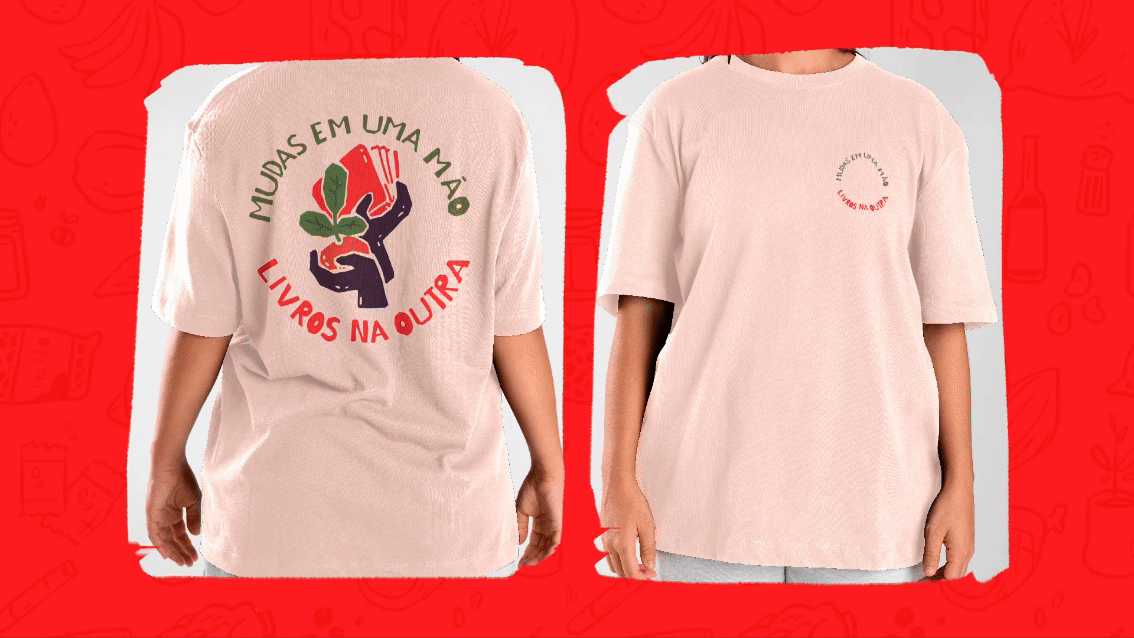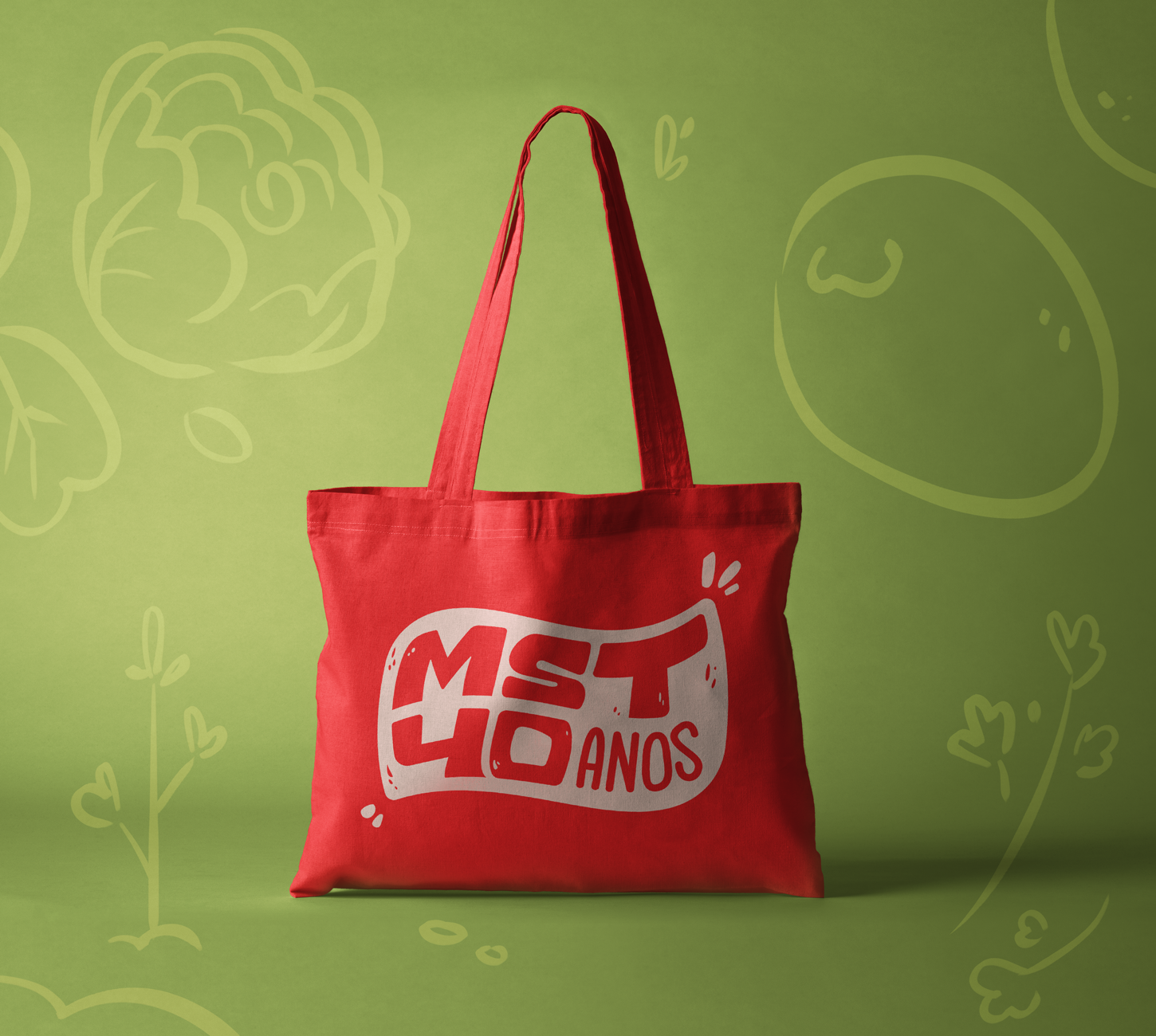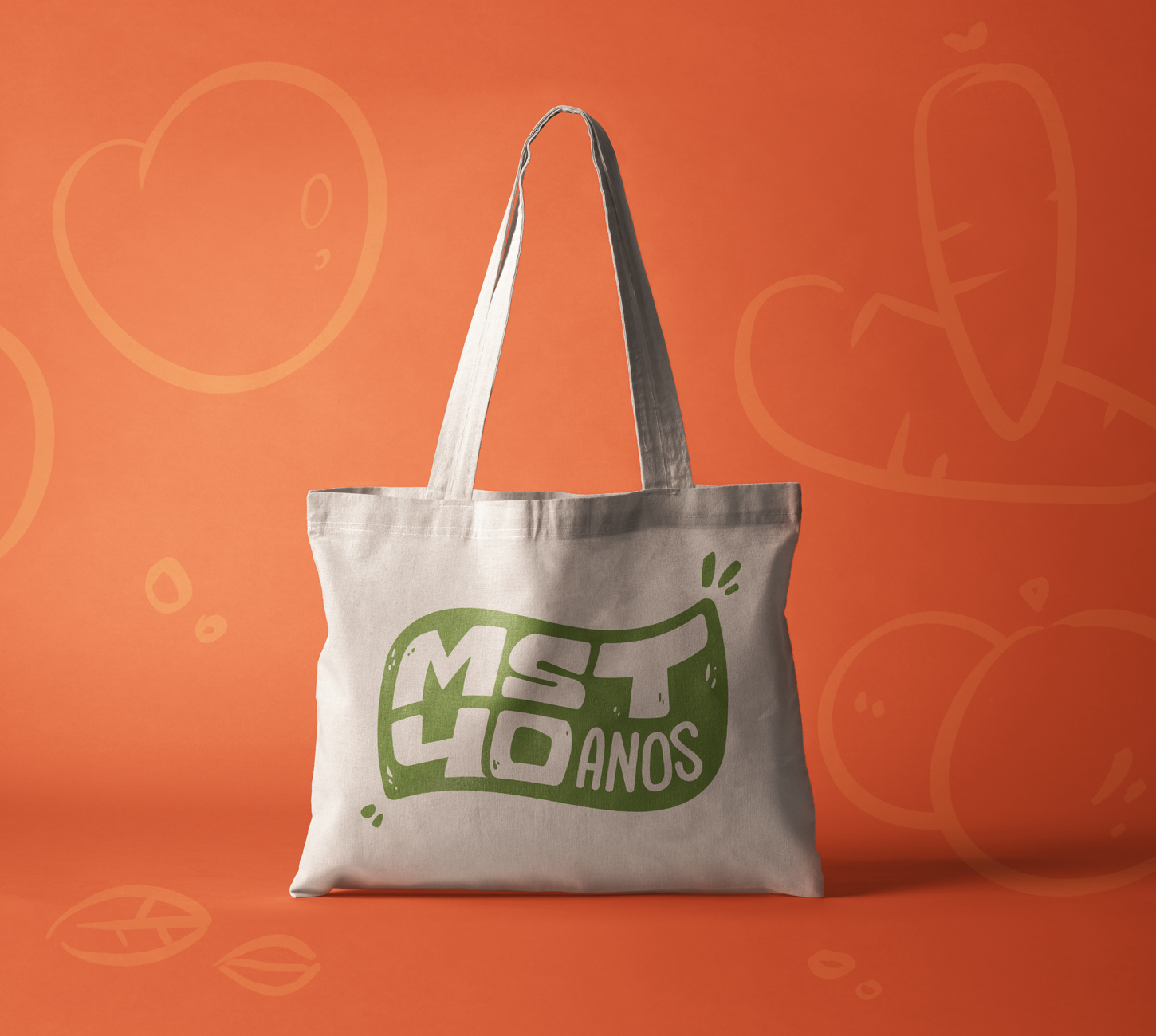/PT
Em 2024, o Movimento dos Trabalhadores Rurais Sem Terra (MST) completa 40 anos de luta pela Reforma Agrária. Desde 1984, o MST tem como objetivo a democratização do acesso à terra no Brasil através da produção de alimentos orgânicos, valorização dos trabalhadores do campo, promoção da educação popular, combate à fome e realização de eventos culturais por todo o território nacional. Este projeto celebra a data comemorativa e foi desenvolvido ao longo do curso "Desvendando a Ilustração Publicitária" da Escola Arte Revide. A estética utilizada inspirou-se na xilogravura e no uso de formas orgânicas e cores tropicais.
/EN
In 2024, the Landless Rural Workers' Movement (MST) celebrates 40 years of struggle for Agrarian Reform. Since 1984, the MST has aimed to democratize access to land in Brazil by producing organic food, valuing rural workers, promoting popular education, fighting hunger and holding cultural events throughout the country. This project celebrates the commemorative date and it was developed during the course “Unraveling Advertising Illustration” at the Arte Revide School. The aesthetics used were inspired by xylograph and the use of organic shapes and tropical colors.
/EN
Stickers from left-right to up-down : "Occupy, resist, produce", "Seedlings in one hand books in the other", "Box of MST products", "Ecology: sustainability, health, justice", "person with MST cap" and "Get lost poison!".
/EN
People alive, standing forest, food on the table
Agroecology is the MST's answer to the environmental crisis, because the struggle to defend nature's common goods is a fight for humanity. In the last four years, the MST has planted 25 million trees across the country, with 15,000 hectares of land recovered in the 6 Brazilian biomes. The agroecological production chain is based on the production of healthy food through family farming, without the use of pesticides, with fair working relationships and respect for the environment. People alive, standing forest, food on the table.
/EN
Largest producer of organic rice in Latin America
The MST is the largest producer of organic rice in Latin America, with a production area of around 5,000 hectares, centered in the South, plus the states of Maranhão and Bahia, producing approximately 100 bags of rice/hectare. Promoting social justice in the countryside, strengthening rural communities and highlighting the transformative potential of agroecology in creating a more sustainable and equitable future for all.
/EN
Land for those who live and work on it
The MST is an autonomous mass social movement that seeks to articulate and organize rural workers and society to achieve Agrarian Reform and a National Popular Project in Brazil. The movement defends the occupation of unproductive land, promoting inclusion, social justice, environmental preservation and the production of healthy food through agroecology. Land for those who live and work on it.
/EN
From the land to the table!
Growing food in a sustainable and fair way, bringing fresh and healthy products directly from the hands of farmers to the tables of communities is one of the pillars of the movement and an affirmation of food sovereignty. Land is more than a means of production, it is a source of life and sustenance for all. From the land to the table!
/EN
Together against hunger
The MST has already carried out several solidarity actions, from workers to workers, such as donating tons of food, including outside Brazil. It was also responsible for the “Mãos Solidárias” campaign in Recife, which distributed more than 1 million lunch boxes to homeless people during the COVID-19 pandemic. The project won the UN's “Pact Against Hunger” award. Healthy eating and the fight against hunger, do you marry this idea?
/EN
40 years of struggle
In 2024, the largest popular movement in Latin America celebrates 40 years of action. Through direct initiatives in favor of cultivation, education and housing, the MST plays an indispensable role in reducing Brazil's inequalities. Even today, only 1% of rural landowners control half of the country's arable land - often unproductive large landed estates with no commitment to national food sovereignty.






Créditos
Ilustração e conceito
Loren Bergantini lorenbergantini.art@gmail.com | https://lorenbergantini.studio
Patrícia pcamatacontato@gmail.com | https://pcamata.com.br
Logotipo
Andrógine
Revisão
Doug Lira (Arte Revide)
Fliras
